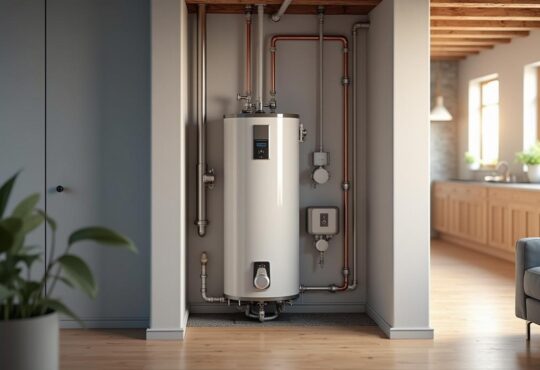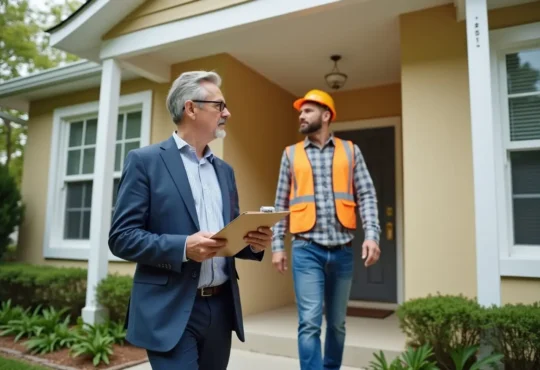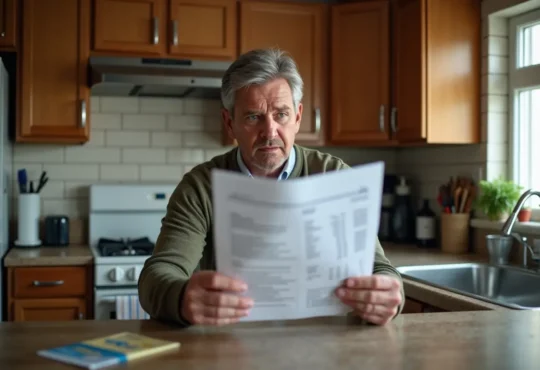
Hidden Plumbing Costs Most Homeowners Don’t Expect
Getting a plumbing quote seems simple enough. The plumber gives a price. Plumbing costs agreed upon. Work gets done. Everyone is on their merry way. But that’s rarely the case. Statistics show that most homeowners pay more than the quoted price over the lifetime of their plumbing needs, but it’s not always that they’re being charged extra. It’s just that certain expenses come with the territory that aren’t quoted up front.
And while these add-ons aren’t necessarily the fault of the plumber, they come down to how plumbing works on the inside once someone gets into walls or under houses. Knowing what can impact plumbing costs helps avoid a sinking heart when it’s time for the final bill.
Contents
Access and Entrance
One of the biggest causes of added expenses comes from where a homeowner least expects it – the ability to get to what’s actually wrong.
That leaking pipe behind the bathroom wall? Someone’s got to cut into the tiles, break off the piece of drywall, and replace it once things are done. Sure, taking a piece of copper pipe and adding a new coupling to another piece may take an hour max. But restoring the bathroom to its former aesthetic? Now you’re talking. Retiling certain sections, patching, finding the same color grout – people grossly underestimate how much it’ll cost.
The plumber may charge you $300 for an hour of work. Still, restoring everything to perfection will easily run another $1,000. This happens with floors, too; if there’s a leak in a concrete slab or your pipes are between stories/floors, someone’s got to get in there through cutting concrete and drywall. Access is never pretty, and once someone gets in there, they’ve got to fix it again perfectly without caveats.
One Fix Begets Another
Plumbing systems are rarely standalone issues; they’re interdependent with an age-old mentality of once it starts to go, it’s all going to go.
A blocked drain can become worse when a camera shows cracks three places down the line. What starts as drain cleaning shifts into a pipe replacement project, which depends on limitations where else? Unfortunately, this is commonplace; older plumbing fails in sections nearby one another. The coupling nearest to the problem section is often connected to another section that’s been through hell and back as well. Fix it, but fix it here while you’re at it – otherwise, you’re in for another call in six months.
While a good plumber will point this out to you, it’s not always taken with open arms. It’s added work that’s not included on the original quote, and now someone’s forced to pay more for something that wasn’t detected in the first place. Yet if one doesn’t take care of the newly-discovered problem, they’re left incurring repeat trip fees. Researching plumber costs in Melbourne shows that these additional finds are one of the reasons why bills exceed initial quotes.
Permitting and Compliance
Not all plumbing work requires permits. But when it does, it takes time – and money. System replacement of hot water systems, major renovations connecting to sewer works or systems installed years ago all come down through council approval and inspection.
There’s a charge for the permit itself and the time needed for approval – sometimes requiring plumbers to return at a later date when the right systems have been approved.
There’s also compliance work that charges more because it must meet specific standards; a plumber cannot cut corners about work that’s been permitted. Everything will be inspected so it must be done properly the first time; this means greater expense for materials AND effort as well.
Material and Supply Costs
The quote one receives usually means general materials and supplies that require time install. However, most plumbing people know that plumbing isn’t a “one size fits all” solution; older homes might have specific piping in different connections or need adapters or available fixtures that don’t readily connect with new parts.
The location of a hot water system might require pipe runs that are TOO short – as opposed to TOO long with additional purchased parts brought into play. It’s all about cost, time, and accessibility – and purchasing pieces here and there all add up due to uniqueness of repairs or supplies.
Specifics usually aren’t expensive on their own; ten fittings added will rarely be deducted from the price once they start accumulating. Five meters extra pipe purchased will run someone several hundred dollars more than initially quoted when it shouldn’t have added that much out of pocket in comparison.
In addition, homeowners choose quality over price more often than not; a homeowner may find mid-range options but decide upon something better after all is said and done – nicer taps, better shower heads, high-efficiency water heaters – all reasonable purchases but ones that add up fast.
Emergency Fees
Plumbing problems rarely occur during business hours, but they do occur! When there is a time-sensitive issue on a Saturday night at 9 p.m., it needs to be fixed then – not on Monday morning at 9 a.m.
As such, call-out emergencies charge drastically higher – sometimes double or triple regular rates because not only is someone inconvenienced for being called on their off hours – someone’s diverting their attention (with all supplies) for the foreseeable future – and with none of the vendors available at that hour as well.
It’s expensive because it costs more due to EMPLOYMENT. Emergencies are employed situations because they’re needed past standard hours – and thus if a plumber has no one available for help or delivery at night, it becomes more costly.
Situations can be avoided until normal business hours; a leaking faucet can wait until Monday morning – but a burst pipe flooding someone’s home cannot. Knowing what’s what saves everyone on emergency costs!
Cleanup Costs
Plumbers will clean up after themselves but they’re not cleaners – they’re not responsible for scrubbing bathrooms once they’ve worked in them, tossing out any remnants from removed pipes they can use, or wiping down general floors for any dust acquired from wall work.
Homeowners who wish for deep cleaning need to facilitate it themselves or pay a cleaning service to come in afterward and that’s additional cost. While nowhere near full installation costs, it’s enough extra generated from the original quote.
It’s also generally expected someone will have to repurchase baseboards that had to be worked around, landscaping that got overturned from sewer work – and there’s no recourse there either.
Inspections Are Costly
Sometimes plumbers can’t just give you a quote without seeing what’s wrong first; thus there’s an inspection charge for them to come down – which sometimes is cited if approval isn’t given for do-it-now efforts and nothing gets fixed anyway.
Some holes I’ve had to bite include video inspections as well of pipes/sewage systems since they cost money – but they provide worthwhile information regarding where things went wrong.
Again, this may prevent excess digging for problems bigger than anticipated – but ultimately it’s an additional fee justified because investigations involve work on behalf of someone instead of approval first!
Planning Accordingly
Most times plumbing access or needs don’t make plumbing job prices what was initially quoted – it’s purely hassles recognized AFTER work starts!
Therefore smart budgeting plans should include padding quotes – expected average priced at $1,500 should give someone room for $2,000 planning just so the unexpected doesn’t come out of left field AND frustrate someone’s control over expenses!
Furthermore, getting quotes down pat helps extensively; the more details available provides specific adjustments that should be accounted for that SHOULD be accounted for later!
What does this quote include? What are complications? And what happens if things are discovered? What is not included?
Getting your head on straight reduces excess fees bringing chaos into planned expenses! Plumbing jobs rarely go off without a hitch but knowing what could affect them helps use resources as plans – not penalties – when quotes exceed expectations at the end!





 Hi I'm Joe.
Hi I'm Joe. 